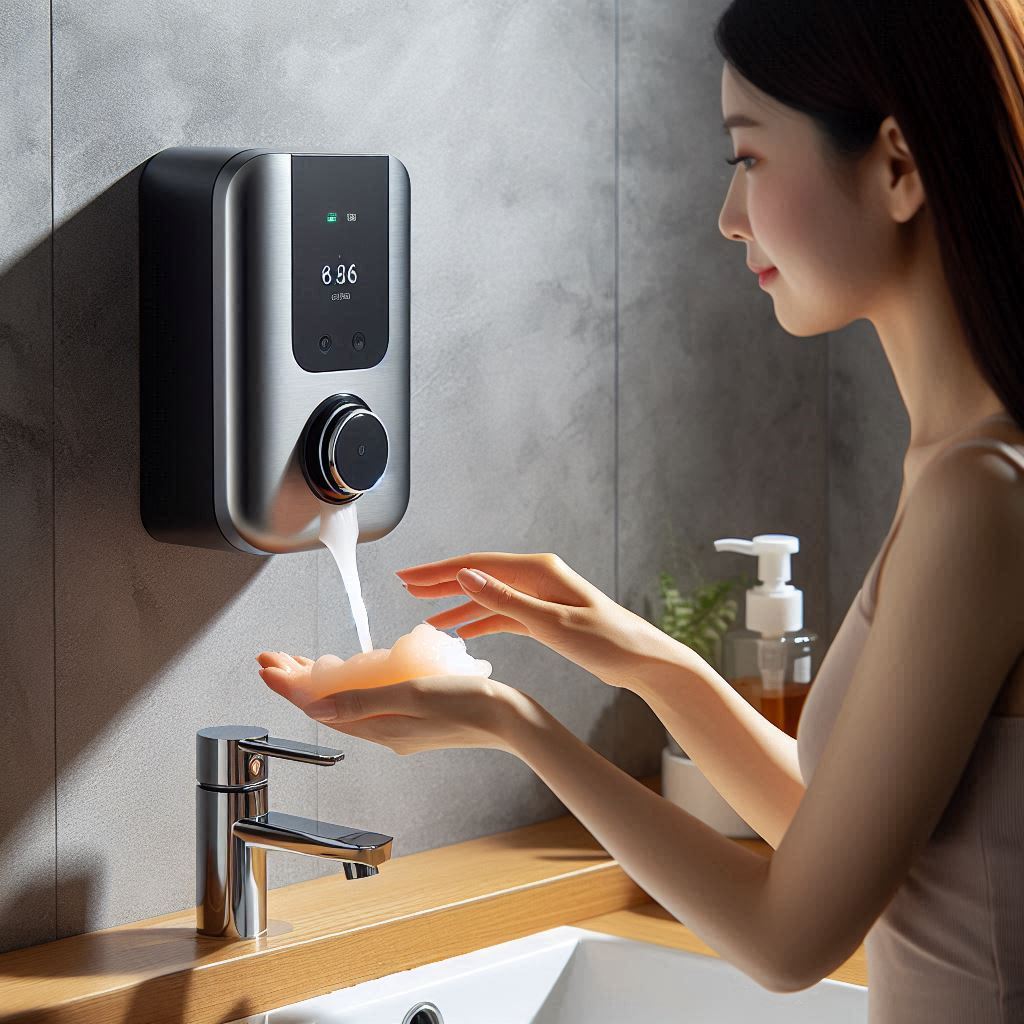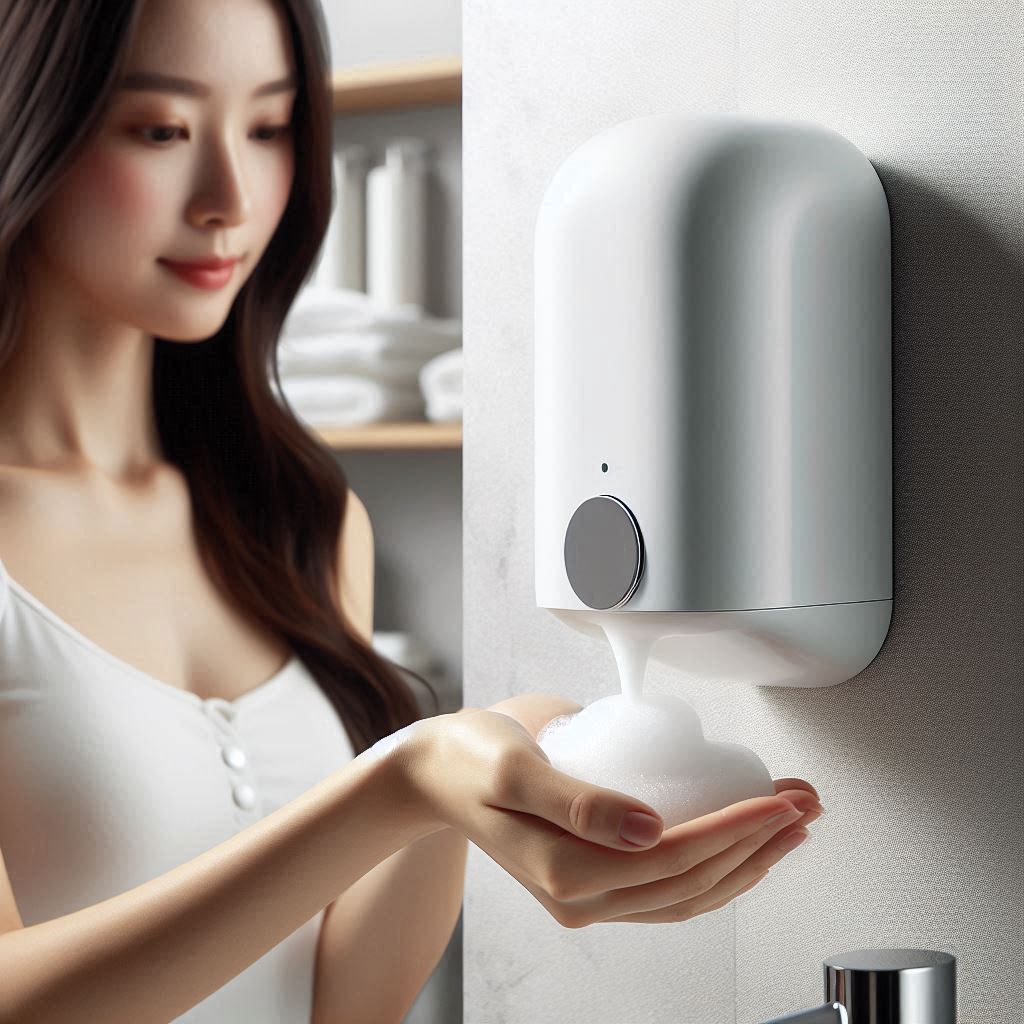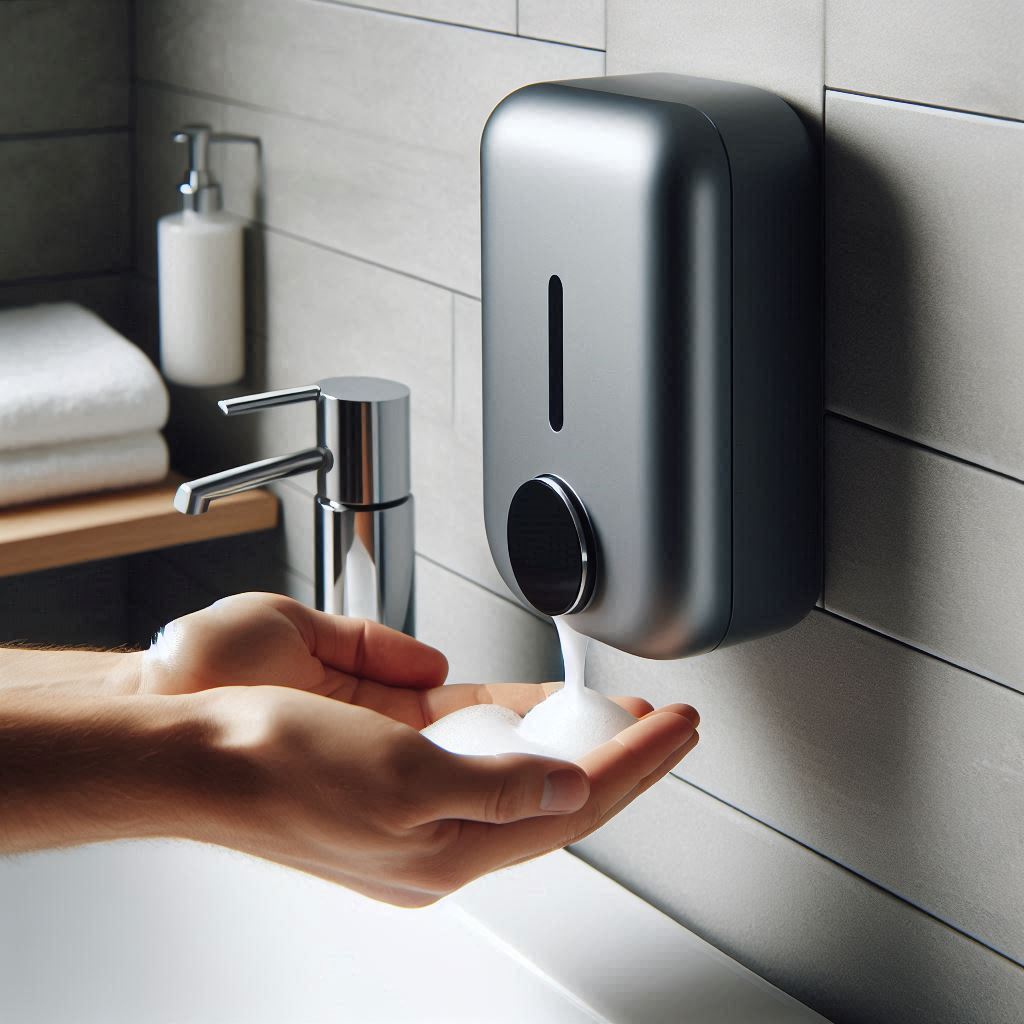The Role of MLCC in Automatic Soap Dispensers

Automatic soap dispensers have revolutionized the way we approach hygiene, especially in public and high-traffic areas. These devices offer a touchless solution to handwashing, reducing the spread of germs and making the process more convenient. At the heart of these dispensers is the technology that powers their operation, including a crucial component known as the Multi-Layer Ceramic Capacitor (MLCC). In this blog, we will delve into the significance of MLCC in automatic soap dispensers, exploring its functions, benefits, and the future of this technology.

What is an MLCC?
MLCC, or Multi-Layer Ceramic Capacitor, is a type of capacitor with multiple layers of ceramic dielectric material sandwiched between metal electrodes. These layers are stacked and fired to create a compact, high-capacitance component that is widely used in various electronic devices. MLCCs are known for their stability, reliability, and ability to function in high-frequency environments, making them ideal for use in modern electronics.
The Role of MLCC in Automatic Soap Dispensers
Automatic soap dispensers rely on several electronic components to function seamlessly. These include sensors, microcontrollers, motors, and power management circuits. MLCCs play a critical role in these devices by providing several essential functions:
- Power Supply Filtering: MLCCs help in smoothing out the power supply to the dispenser’s electronics. They filter out noise and provide stable voltage, ensuring that the device operates reliably.
- Decoupling: MLCCs are used to decouple different parts of the circuit. This means they help in isolating different components, reducing interference and ensuring that each part operates correctly.
- Timing and Oscillation: In circuits that require precise timing, such as those controlling the sensor and motor, MLCCs help in maintaining accurate oscillation frequencies.
- Signal Processing: MLCCs are involved in the signal processing stages, ensuring that the sensor signals are clean and accurately interpreted by the microcontroller.
- Stability and Reliability: The inherent stability of MLCCs under varying environmental conditions makes them ideal for use in automatic soap dispensers, which might be exposed to different temperatures and humidity levels.
Advantages of Using MLCC in Automatic Soap Dispensers
The integration of MLCCs in automatic soap dispensers offers several advantages:
- High Reliability: MLCCs are known for their reliability, which is crucial for devices that need to function consistently over long periods without maintenance.
- Compact Size: The small size of MLCCs allows for compact circuit designs, enabling manufacturers to produce sleek and aesthetically pleasing dispensers.
- Cost-Effective: MLCCs are cost-effective, helping to keep the overall manufacturing costs of automatic soap dispensers down.
- Performance: With high capacitance values and stability, MLCCs contribute to the overall performance and responsiveness of the dispenser.
- Durability: MLCCs are durable and can withstand mechanical stress, which is important for devices that are frequently used and handled.
The Technology Behind Automatic Soap Dispensers
To understand the role of MLCCs better, it’s important to look at the technology that drives automatic soap dispensers:
- Infrared Sensors: These sensors detect the presence of hands under the dispenser. They emit infrared light and measure the reflection to determine if an object is present. MLCCs are used in the sensor circuits to ensure stable and accurate operation.
- Microcontroller Unit (MCU): The MCU processes the signals from the sensors and controls the motor that dispenses the soap. MLCCs help in filtering and decoupling the power supply to the MCU, ensuring it operates without interference.
- Motor and Pump: The motor, controlled by the MCU, drives the pump that dispenses the soap. MLCCs in the motor driver circuit help in reducing electrical noise and ensuring smooth operation.
- Power Management: Automatic soap dispensers can be battery-powered or connected to a power supply. MLCCs are used in the power management circuits to stabilize the voltage and filter out any noise, ensuring reliable operation.
Future Trends and Innovations
The future of automatic soap dispensers is set to see more integration of smart technologies and IoT capabilities. As these devices become more advanced, the role of MLCCs will continue to be crucial. Here are some future trends:
- IoT Integration: With IoT, dispensers can be connected to the internet for remote monitoring and management. MLCCs will play a vital role in ensuring stable communication and power management in these connected devices.
- Enhanced Sensors: Future dispensers may use more advanced sensors for better accuracy and efficiency. MLCCs will be essential in processing these sensor signals accurately.
- Energy Efficiency: As manufacturers strive to make dispensers more energy-efficient, MLCCs will be key in optimizing power usage and extending battery life.
- Miniaturization: With the trend towards smaller and more compact devices, the role of compact and high-capacitance MLCCs will become even more important.
Recommended Samsung and Yageo MLCCs for Automatic Soap Dispensers
Samsung MLCCs
Samsung is a well-known manufacturer of MLCCs, offering a wide range of products that are highly reliable and suitable for various applications, including automatic soap dispensers. Here are a few Samsung MLCCs that are particularly well-suited for this application:
- CL05B104KO5NNNC
- Capacitance: 100nF
- Voltage: 16V
- Size: 0402
- Tolerance: ±10%
- Temperature Coefficient: X7R
- Features: This MLCC is compact and ideal for decoupling and filtering applications in the control circuits of automatic soap dispensers.
- CL10A106MQ8NNNC
- Capacitance: 10µF
- Voltage: 6.3V
- Size: 0603
- Tolerance: ±20%
- Temperature Coefficient: X5R
- Features: Suitable for power supply filtering and decoupling applications, this MLCC provides stable performance in various environmental conditions.
- CL21B105KOFNNNG
- Capacitance: 1µF
- Voltage: 50V
- Size: 0805
- Tolerance: ±10%
- Temperature Coefficient: X7R
- Features: Ideal for signal processing and timing applications, ensuring accurate sensor operation.
Yageo MLCCs
Yageo is another leading MLCC manufacturer, known for its high-quality capacitors that meet the demands of modern electronics. Here are some recommended Yageo MLCCs for automatic soap dispensers:
- CC0402KRX7R9BB104
- Capacitance: 100nF
- Voltage: 50V
- Size: 0402
- Tolerance: ±10%
- Temperature Coefficient: X7R
- Features: This MLCC is perfect for high-frequency decoupling and filtering applications, ensuring stable operation of the dispenser’s control circuits.
- CC0603KPX7R8BB105
- Capacitance: 1µF
- Voltage: 25V
- Size: 0603
- Tolerance: ±10%
- Temperature Coefficient: X7R
- Features: Suitable for power supply stabilization and noise filtering, this capacitor is robust and reliable under various operating conditions.
- CC1206KKX7R9BB106
- Capacitance: 10µF
- Voltage: 25V
- Size: 1206
- Tolerance: ±10%
- Temperature Coefficient: X7R
- Features: This MLCC is excellent for bulk capacitance applications, providing stable voltage and filtering in power management circuits.
Conclusion
MLCCs are indispensable components in automatic soap dispensers, contributing to their reliability, performance, and efficiency. As technology advances, the role of MLCCs will continue to grow, supporting the development of more sophisticated and efficient dispensers. Understanding the significance of MLCCs helps in appreciating the intricate technology behind these everyday devices and highlights the importance of continued innovation in the field of electronic components.

